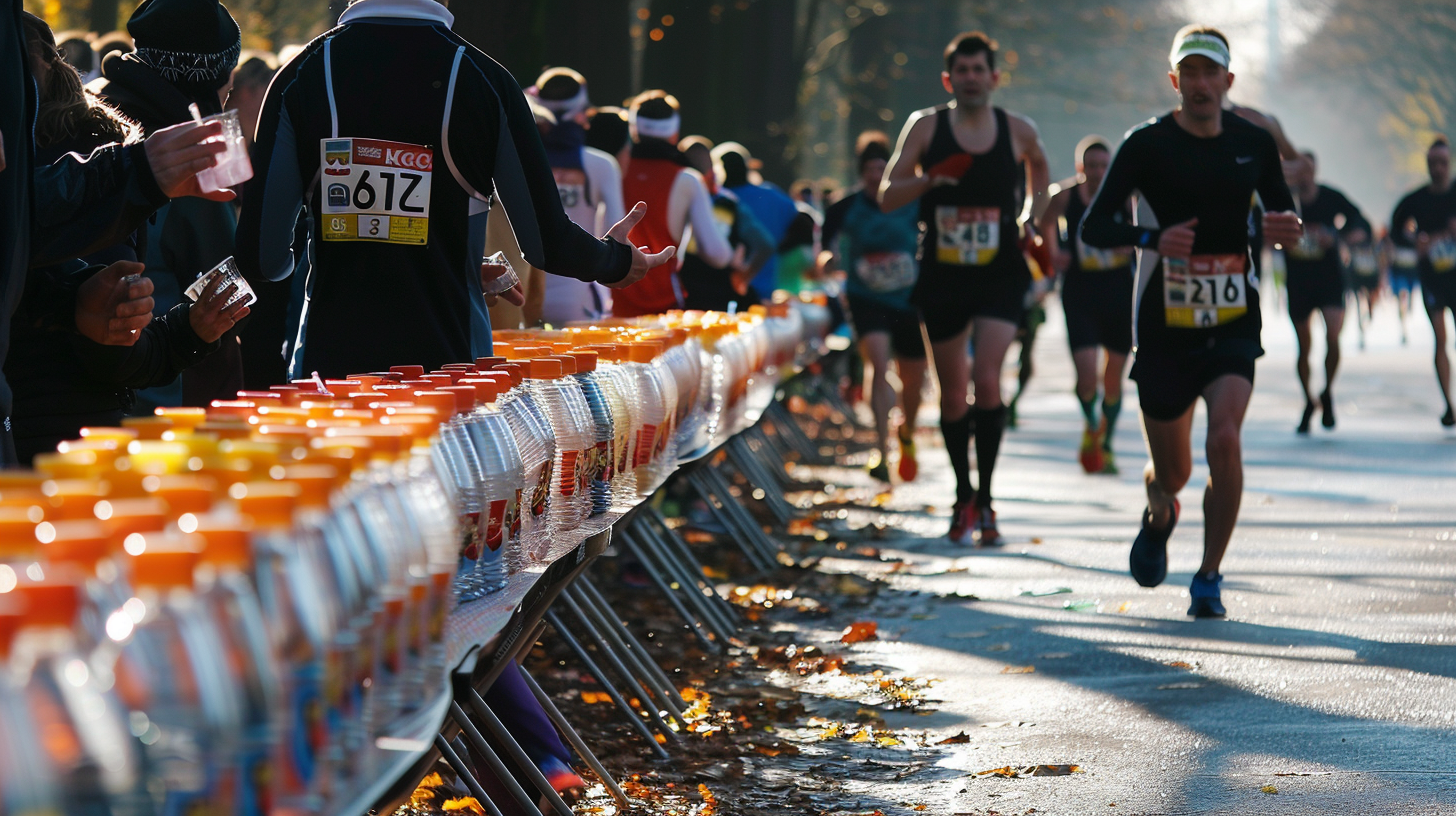
Marathon nutrition strategy
Optimize your marathon nutrition with glycogen, electrolytes, and carb-loading.

In a marathon, and in all endurance races (triathlons, trails, etc.), the body needs fuel to operate optimally and maintain performance over such a long effort. Through this article, I will share best practices from my research and also share mistakes to avoid based on my experiences. In simple terms, the body will need sugar and salt to function effectively for so long.
Glycogen is essential for supporting long physical activities, as it's the main source of energy stored in the muscles and liver.
Glycogen is formed from dietary carbohydrates. Once ingested, carbohydrates (starch from pasta, sugar from fruits, etc.) are digested by the stomach, which breaks them down into small glucose molecules. The body uses some of these molecules for its functioning. The liver and muscles then store what is not used as glycogen.
To summarize, here are the different forms of “sugar” with the name of the transformations in parentheses: Dietary Carbohydrates (Digestion) > Glucose > (Glycogenogenesis) > Glycogen > (Glycogenolysis) > Glucose
During physical exercise, the body breaks down glycogen to quickly provide energy to the muscles. Therefore, the use of these reserves is limited in time and is accompanied by the use of lipids (fats) during a long-duration effort. But fats provide less energy. When the body no longer has glycogen available, it leads to early muscle fatigue, a drop in performance, and even muscle cramps. This is the famous “marathon wall”
The body stores enough glycogen in the muscles for about 75 to 120 minutes of running. This varies greatly depending on age, sex, training level…
The table salt we use daily in cooking is also called sodium chloride. Its formula is NaCl, so it is composed of Chloride (Cl) and Sodium (Na). For us, it's especially Sodium that is important for the athlete. (In 1 g of salt, there is about 387 mg of sodium)
Sodium helps regulate the distribution of water between intracellular and extracellular environments and therefore your hydration state. If, during effort, the loss of salt through sweat is not compensated, the consumed water can no longer play its role in hydration. Disturbances in the water balance can cause hyponatremia (blood sodium deficit), which can cause:
On the other hand, drinking too much can also cause this hyponatremia, an overconsumption of water will dilute the sodium present in the body. Cells will then seek to absorb more water to get more sodium, and you end up with the “same” issue: too much water and not enough sodium.
This was one of my mistakes in my first Ironman, drinking only water. The last kilometers of the marathon were very tough, and the hours of the race felt endless. At the “last” aid stations, I would stop to drink each time, but still couldn't quench my thirst. And even drinking up to two or three cups, the thirst persisted.
I then made the two mistakes in the same race. By drinking only water and without salt intake, I no longer had enough sodium, which led to hyponatremia. And drinking too much water did not help, it only worsened the situation.
To avoid this, there are effort drinks. Effort drinks must be “isotonic”, meaning they contain the same concentration of particles as the blood. They provide water, minerals, and necessary nutrients.
If you make your isotonic drink at home, be careful with the dosages. Some also simply use water containing a bit of salt, it's not "optimal" but it does the job!
Even though it is possible to finish a marathon without a real nutrition strategy, as in my example with the Ironman. It's worth putting all the chances on your side by preparing your nutrition, because the marathon is a long test in which you always encounter unforeseen events, so it's best to master as much as possible.

Optimize your marathon nutrition with glycogen, electrolytes, and carb-loading.